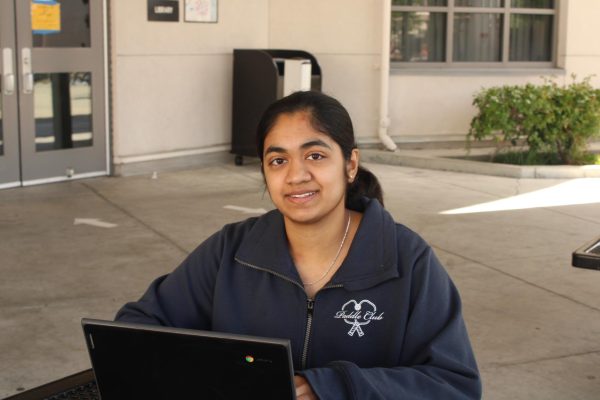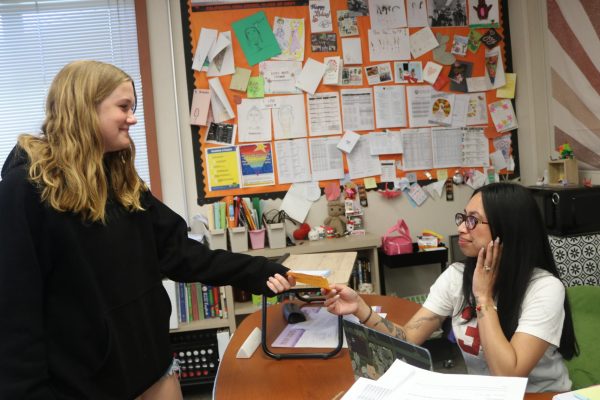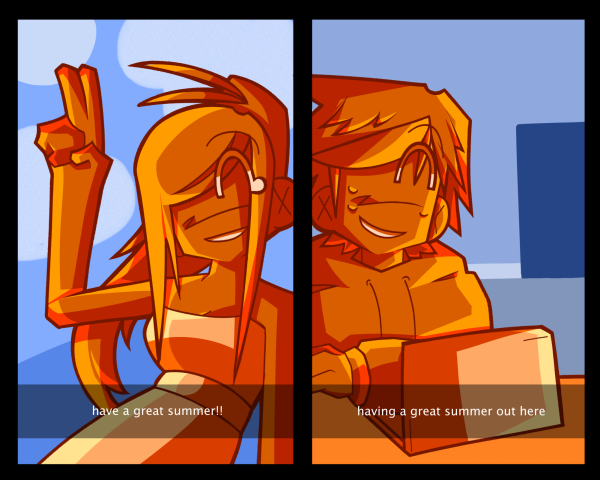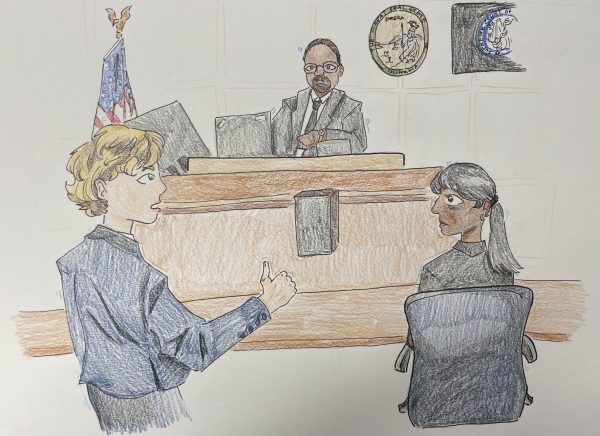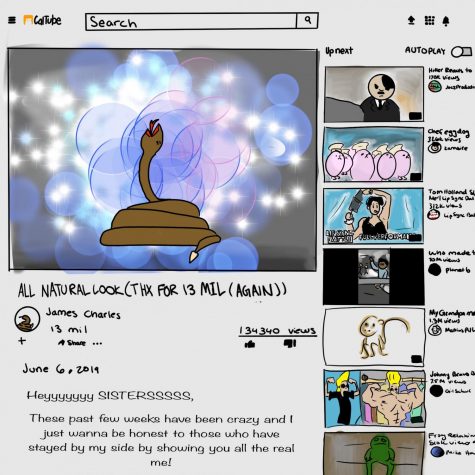Student interviews Justice Ginsberg
Brytney Lee interviewed Supreme Court Justice Ruth Bader Ginsburg for a school research project.
Most students groan when they have research papers, especially when the topic is as mundane as the Supreme Court.
But not for junior Brytney Lee.
When Lee was assigned a paper on Supreme Court Associate Justice Ruth Bader Ginsburg, she decided to give the 84-year-old justice a call to ask some questions.
Lee had to write the paper for her US history class and was afforded the privilege of talking to one of the longest tenured members of the Supreme Court.
It was one of those small world moments that made Lee’s interview with Ginsburg possible. Lee’s mom happened to know Ginsburg’s daughter.
“My mom emailed her daughter to ask if I could email her and it turns out she had some time to talk,” Lee said.
Lee was granted the opportunity to have a brief phone interview with Ginsburg to ask all the questions she needed to complete her project.
Her topics ranged from serious ones about Ginsburg’s most important decisions to more light hearted ones, such as if Ginsburg was ever a Girl
Scout.
She was not.
“I skipped class to call her,” Lee said. “We talked for about ten minutes.”
Lee said the experience was exhilarating.
“It was amazing I couldn’t believe it was actually happening,” Lee said.
Lee was gracious enough to grant The Californian access to a copy of the transcript of her interview, so students could have a little insight on this American icon and the inner workings of America’s highest court.
She told Lee of her feelings of excitement after being nominated by then president Bill Clinton in 1993.
“I was on cloud nine,” Ginsburg said. “It was a dream job for me.”
Once on the court, Ginsburg told Lee of how surprised she was of with the rapport between its members.
“You have people you not only respect, but genuinely like each other,” said Ginsburg. “That’s why I think the court works as well as it does.”
Lee was then told of why Ginsburg thinks the 1803 decision by the Marshall Court, Marbury v. Madison, was the most important case the Supreme Court decided in U.S. history.
“That was a case that established the courts not only right, but obligation, to measure laws passed by Congress and executive orders of the President against the Constitution to engage in what lawyers call Judicial Review for Constitutionality,” said Ginsburg.
Ginsburg is also considered a feminist icon in many circles for the numerous glass ceilings she shattered during her career as a lawyer and judge.
She was the first woman to write for the Harvard Law Review and was a tireless advocate for women’s rights and gender equality, winning multiple cases before the Supreme Court as general counsel for the American Civil Liberties Union.
She told Lee of her inspiration to be the leading advocate for gender equality in the late 20th century.
“In those days there were practically no women in the profession [of law] so I thought there was something wrong with that, but it wasn’t until the late 1960s that I saw that there was a real possibility for change, to open doors that have been closed to women and that with my skill as a lawyer I could help move that change along,” Ginsburg said.
Ginsburg said she has no plans of slowing down any time soon. She works a full docket of Supreme Court cases while also balancing a busy speaking schedule at many colleges and universities.
And throughout this all Ginsburg said woud not take any of it back.
“I can’t say I have any regrets,” Ginsburg said. “So much that has happened to me in life has involved more than a little bit of luck.”
Ginsburg also imparted the wisdom of a career advocating for equality and interpreting the Constitution on Lee.
“She said to get out of your comfort zone,” said Lee. “To really just help other people and your community.”


